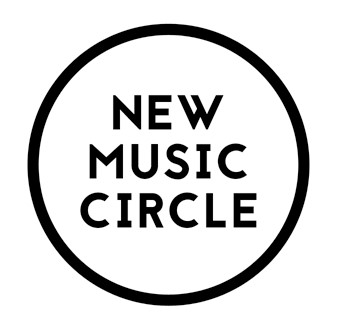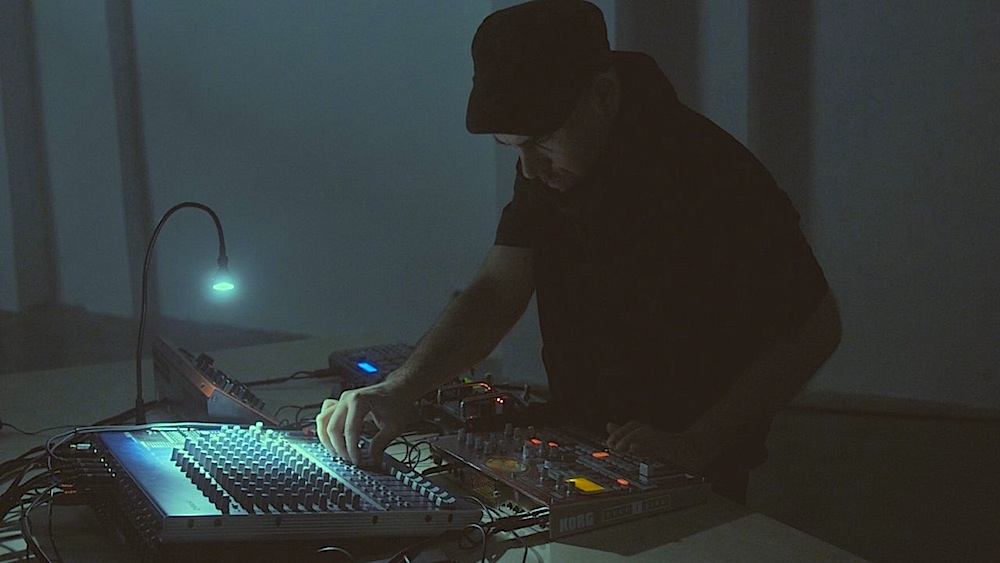While known to many for his keen vinyl-mastering skills, honored by the hundreds of releases which now grace his name, Rashad Becker has created a music of his own that sounds quite unlike anything else. Becker’s sole 2013 release, Traditional Music of Notional Species Vol. 1 (PAN), is a foray into the realization of possibilities and “fictions” technically capable by live electronic means, and thus creates temporary, sonic environments that are uncanny and compelling.
How different is the approach to your live performances from your recorded output? Do you hope to create something different in a performance context?
Naturally recorded music follows different rules of narrative and tension than music that is performed live. It also bonds with people’s biographies in different ways, the usage is simply entirely different. Although my pieces are conceived in the studio, I usually play them live for a while before i sit down to record them. I know my own attention span is bigger when I play my pieces live so I always run into trouble when breaking them down for a recorded format, as I like short pieces…..and if there was no one keeping me from endlessly cropping, my pieces would probably all be under 2 minutes!
What were some formative music experiences for you growing up in Germany?
Well, I grew up with a lot of weird and peculiar music around me as it was Germany at the beginning of the 80s…there was quite a lot of surprise, weird humour, peculiar rhythms, colors, and progressions. Only a few of these groups had international recognition while the scene was huge in Germany. Besides that, the early days of British industrial culture were very intriguing to me, and of course punk and hardcore in it’s most dilletantic and least macho forms. Though I am not sure though how much actual influence my musical socialization has on the music I play today, I think non-musical and even non-sonic influences might be even stronger, social memory…to the day still I find the most overwhelming musical experiences rather in traditional music from Asia, Asia minor, Africa and South America.
Speaking generally, has Berlin been a good place for you to discover and make art? Is there anything specific about your environment that facilities or inspires you creatively?
Berlin has been a good and rich diaspora for anyone following a special interest in the past, with things changing from 2000 on. Berlin always had special conditions, the division being one of them, the lack of grip and supervision on the eastern part after the wall came down being another one. What set Berlin aside from Paris and London for example was that people would go there to actually live there and not just to be there for a while to tick a box in their curriculum. That made for a lot of social and cultural longevity, people properly conspiring over long terms and the places/clubs/galleries etc being real long term forums for a certain culture and a certain group of people. On top of that, you really did not need to move money around to be able to live there. My first flat in East Berlin was about $3.00 for rent a month, the second one a steep 400% increase to about $12.00…so you would just engage in commercial activities like labour every now and then when money ran out, so people had time for more important things than moving money around.
You’ve mentioned that your music is inspired by fiction…
I have always liked the writers of the era that was called ‘visionary poetry’ or ‘hermetic literature’ in German and has been referred to as ‘German Gothic’ in other languages. Also I am fond of the early 20th century German expressionists – but, more than actually being inspired by fiction, writing music is a compensation for my lack of endurance to follow up with my rather big ambition to write words….
With your interest in fiction and traditional musics and their instruments, on the flipside, I was wondering what electronic instruments offer to you …what are the challenges and what are the rewards of using them?
Synthesizers have a stronger fictional potential and expansion than natural instruments, they do not necessarily carry as much weight/history/patina as natural instruments do and hence allow for a more novelty language. Basically every sound you synthesize has the potential to bring the whole idiosyncrasy of an actual new instrument to the table. In that regard it is precious to me that my music is purely synthetic, as it gives me a lot of room to create my own kind of fiction. In analogy to animated movies, I was always puzzled why so much of their vocabulary is actually an emulation of non-animated movies in terms of cinematography etc and why so little examples beyond completely abstract and artistic movies actually elaborate on the potential and freedom the animated format provides. In that sense to me synthetic music provides a different potential for sonic and musical fiction than music written and arranged for natural instruments.

